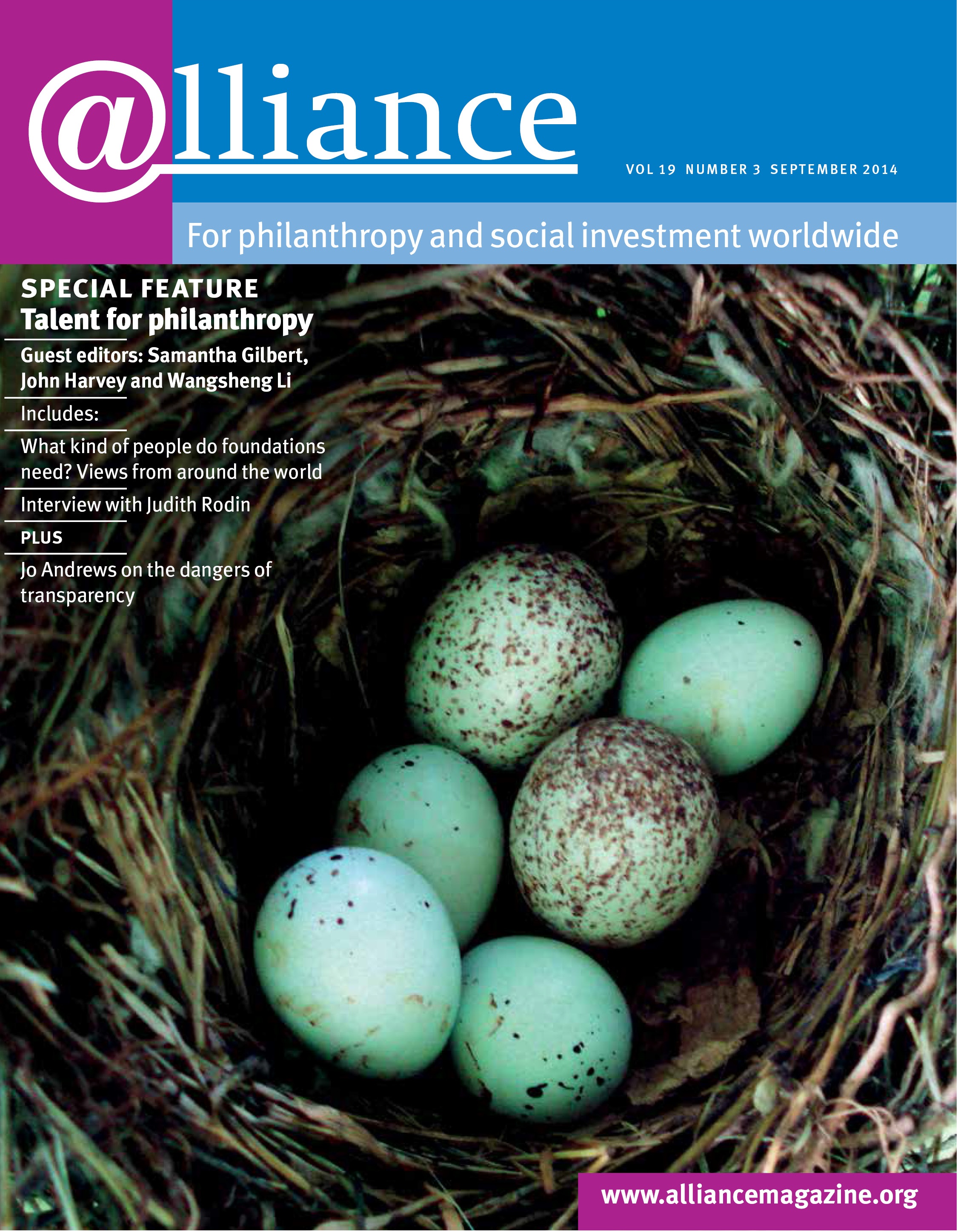When my business partner and I asked her what she expected to earn as a consultant at our advisory firm Beyond Philanthropy, the young woman cheerfully named a figure that was double the amount we were making with 12 years’ more experience and the responsibility for managing Beyond. Another attempt to attract a talented consultant from a leading management consultancy to the world of non-profit advice had failed.
As the market moves from charity to venture philanthropy to impact investing, companies are revising their CSR and corporate giving activities to include a variety of approaches along the impact investing spectrum that require social as well as financial skills, and individuals are increasingly interested not just in donating, but also in investing in social businesses. Hence, as we are seeking ‘blended returns’ in our sector, we also need consultants with a ‘blended skill set’ which combines a deep understanding of the non-profit sector with financial and management skills.
But these hybrid talents are difficult to find. University courses tend to focus on one end of the spectrum (social return) or the other (financial return). For an organization like Beyond Philanthropy, which might be either helping a traditional NGO to set up a social finance fund or assisting a major corporation to review its CSR strategy, employees need to have a good understanding of the realities of business as well as of the day-to-day work of an NGO. It is no surprise that the market for non-profit consultancy in Europe is still small, and largely split between traditional management consultancies doing pro bono work and small firms that can deploy only a handful of people on any contract.
Both approaches have their challenges. ‘People from the non-profit sector like us doing probono work, but they also like to see us leave again,’ one partner of a leading management consultancy told me recently. Most people I talked to were quick to point out the cultural differences between the sectors. ‘The non-profits are often surprised by our rigour, how persistent we are and how structured,’ one consultant told me. ‘Consultants have to be able to use the tools they have; to think up new ones is sometimes a problem for them,’ retorts a manager from a highly successful non-profit that has worked with a lot of consulting companies. Rose Volz-Schmidt from the German non-profit Wellcome sums it up as follows: ‘Finding the right fit with a consultancy comes down to luck. You have to meet the right people at the right time.’
Turning to one of the small consulting firms steeped in the non-profit culture is often not a solution either, at least for big established NGOs or large corporates wanting to work on their CSR strategy – simply because these consultancies don’t have the capacity to deliver the services needed.
So what can be done? Attracting consultants to switch sides doesn’t seem to work as few are willing to accept the severe pay cut that normally goes with it. Over time, this might change. Several consultants I spoke to felt that the millennials, those born in the late 1980s and 1990s, will change the face of traditional consulting, as they are eager to work for impact, and also willing to trade a big bonus for a work–life balance. The consultants felt that that would have an impact on how consultancies work, and might lead to a greater permeability between sectors.
Another approach might be creating structured collaborations between management consultancies and non-profit consulting firms on an as-needed basis. Beyond Philanthropy has recently entered into such a joint venture with the management consultancy goetzpartners, which is owned and run by one of the trustees of the charity Active Philanthropy. The arrangement allows Beyond to bring consultants from goetzpartners into projects on an as-needed basis, thereby avoiding expensive ongoing overheads and adding process management and analytical skills to the team. For goetzpartners, the collaboration is part of its own CSR – they are currently helping Beyond Philanthropy develop its consulting business on a pro bono basis and accept reduced fees for external contracts –and adds to the attractiveness of the firm as an employer.
Early experiences show that the cultures are indeed different, but differences can be bridged if both partners make the joint success of the venture a priority and are willing to invest time to learn from each other. And the collaboration works because money is not the ulterior motive: all profits from Beyond’s work are donated to the charity Active Philanthropy.
Felicitas von Peter is president and CEO of Active Philanthropy. Email vonpeter@activephilanthropy.org




Comments (0)